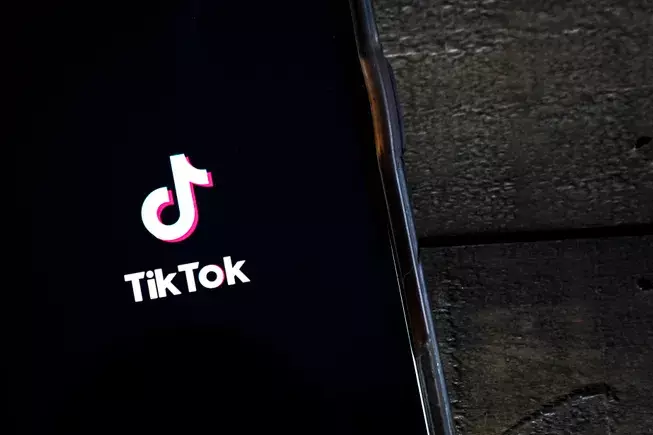In recent years, the landscape of social media has morphed from a unified space of global connectivity into a battleground fraught with geopolitical tensions and regulatory hurdles. TikTok’s ongoing battle with U.S. authorities exemplifies this shift—a vivid illustration of how national security concerns are increasingly dictating the fate of platforms that once promised borderless communication. The move by ByteDance to develop a U.S.-specific version of TikTok not only echoes a larger trend but signals a profound pivot in the philosophy of global digital engagement.
Rather than operating as a truly international platform, TikTok now appears to be splitting its core product to appease an increasingly skeptical government. The strategy is subtle but significant: create a separate U.S. version, likely with limited access to the core algorithmic engine that drives user engagement worldwide. This division risks carving the platform into regional silos, undermining its original selling point—a seamless, addictive experience fueled by sophisticated machine learning. Such fragmentation points toward a future where digital platforms are no longer unified entities but regional territories governed by different sets of rules, laws, and security measures.
The implications extend beyond mere policy compliance. They challenge the fundamental nature of what social media is meant to be—a shared digital space for expression, entertainment, and community. Can a platform truly serve its users if it is compelled to compartmentalize content and algorithmic personalization? Probably not at the same level of depth and responsiveness that made TikTok an engaging powerhouse. The risk is clear: American users may find themselves engaging with a diluted, less autonomous version of TikTok, eroding the very experience that fostered their loyalty in the first place. This raises serious doubts about whether governments will settle for superficial measures or push for deeper structural changes that alter the core of these social platforms.
Security, Sovereignty, and the Profit Motive
The push for a U.S.-only TikTok, ostensibly to enhance security and address sovereignty concerns, is fundamentally a geopolitical chess move. U.S. lawmakers argue that foreign control of platforms collecting vast quantities of user data poses a national security threat. These fears aren’t entirely misplaced, given the nature of data control in a digital age increasingly governed by regional interests. The American government seeks not just to regulate but to exert influence over the technological fabric of social interaction—this is about sovereignty, control, and preventing foreign interference.
In response, ByteDance seems to be navigating a complex balancing act: maintaining its global reach and revenue streams while conceding some control over its U.S. operations. Creating a separate app could be seen as a strategic compromise—temporarily placating regulators while safeguarding the core business. But it also raises troubling questions about data privacy and user rights. Will this regionalized approach lead to less rigorous privacy standards, or will it serve as a veneer of compliance masking deeper security vulnerabilities? The potential for a “privatized” version of the platform to operate with less oversight could open the door for future breaches, leaving U.S. users vulnerable despite official assurances.
Moreover, this move hints at a broader shift: technological sovereignty becoming a core aspect of national policy. The Chinese government views TikTok as a matter of national pride, technological innovation, and sovereignty—any threat to control over its platforms is perceived as a potential compromise of state interests. The U.S. is no different; instead, it seeks to insulate its citizens from perceived foreign influence by fragmenting the digital ecosystem. This trend suggests a future where national interests drive decisions at the expense of an integrated, open internet—an arena where corporate interests are increasingly subordinate to geopolitical agendas.
The Political Gamesmanship and Future of Global Platforms
The timing of these developments reveals the political undercurrents at play. The history of negotiations around TikTok’s sale or regulation in the U.S. underscores a broader pattern: political decisions are often motivated more by election-year optics, ideological battles, and power politics than by genuine security concerns. The fact that political figures speak openly about potential buyers approved by their administrations demonstrates a climate where technology is weaponized for diplomatic leverage.
This environment creates a precarious foundation for the future of social media. Platforms like TikTok, once symbols of innovation and cultural exchange, are now pawns in geopolitical maneuvering. The creation of region-specific versions might temporarily satisfy regulatory demands but risks stifling innovation, reducing diversity of content, and fragmenting online communities. From a center-right liberal perspective, this is a worrying trend—regulation should protect national security without sacrificing the multilateral, interconnected spirit that fueled the platform’s meteoric rise.
In this context, the notion that a global social media powerhouse can remain truly global seems increasingly naive. Instead, we are heading toward a world where digital sovereignty becomes the default mode of operation. Governments will impose regional restrictions, and tech companies will have little choice but to adapt or risk being pushed out entirely. This decentralization could serve as a double-edged sword—while it might enhance security, it will also diminish the democratic potential of social media by creating echo chambers, limiting cross-border dialogue, and fostering digital nationalism.
The new digital landscape is one marked by cautious siloing rather than free-flowing exchange. For policymakers and industry leaders alike, this signals a need to confront the delicate balance between security and innovation. As regional platforms multiply and algorithms become increasingly curated by national interests, the very fabric of social media’s original mission—to connect, entertain, and empower—becomes frayed. In this new era, the challenge is to preserve the openness that once defined the internet while safeguarding against the emerging threats that threaten to limit it to exclusive, state-controlled enclaves.









Leave a Reply